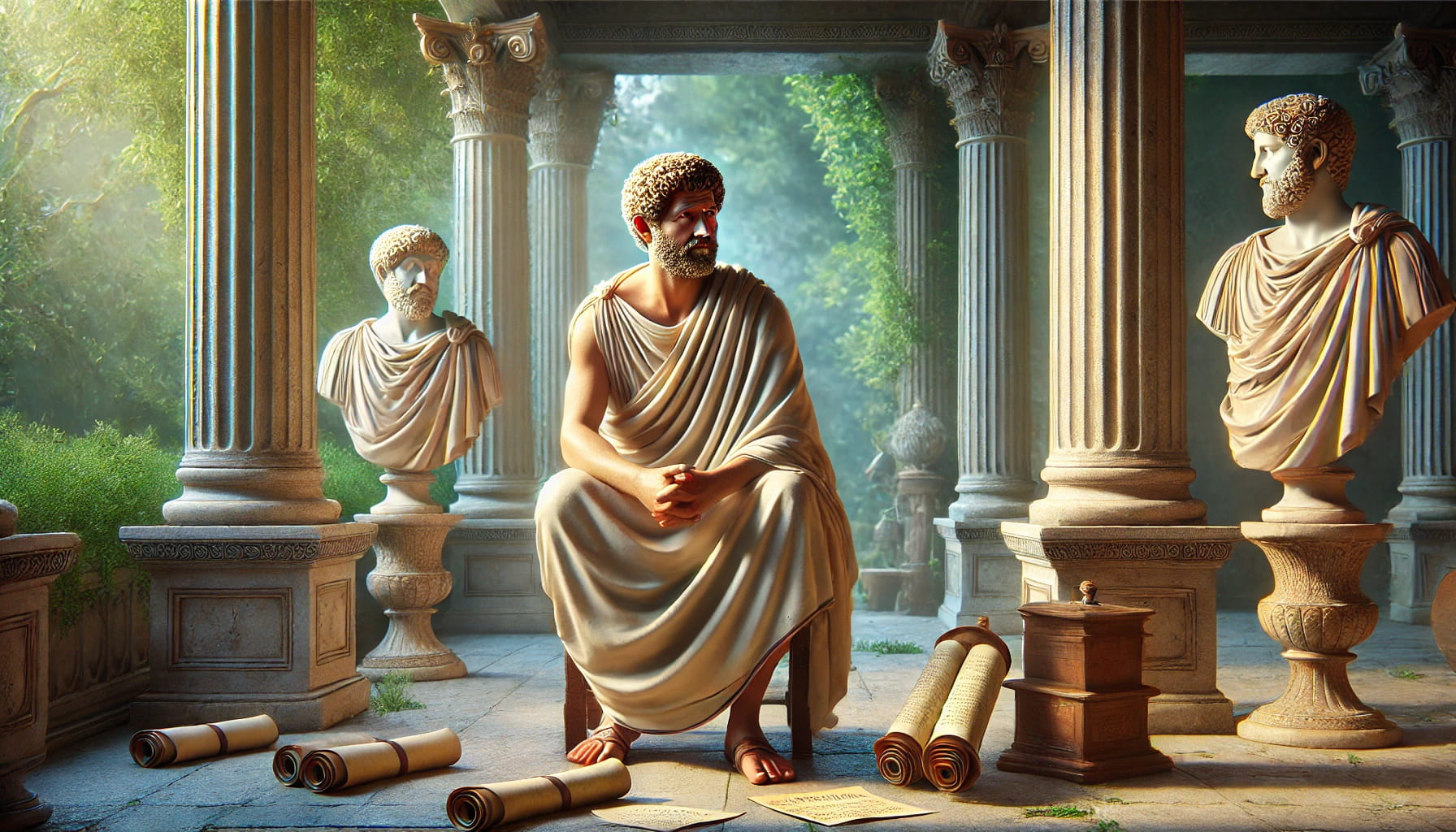The Thoughts of Marcus Aurelius, also known as Meditations, are one of the most influential philosophical works of antiquity and a fundamental source of Stoic wisdom for everyday life. Writing primarily for himself, Marcus Aurelius, the Roman emperor and Stoic philosopher, focused on the development of his character and understanding the meaning of life, exploring how to live in harmony with oneself and the world. In this text, timeless lessons on self-understanding, acceptance of the ever-changing nature of life, and the importance of virtue as a path to inner peace can be found. His message still resonates today, offering practical tools to face modern challenges.
Marcus Aurelius and the Pursuit of Inner Serenity
One of the central themes in Marcus Aurelius’ Thoughts is the pursuit of serenity and inner peace. As an emperor, he was constantly surrounded by conflicts and challenges, from administrative responsibilities to war and the threat of plagues. However, instead of being consumed by anxiety or resentment, he focused on finding steady calm through self-control and mental discipline.
For Marcus Aurelius, serenity does not mean avoiding difficulties but accepting reality as it is and maintaining control over one’s emotional response. This principle reveals the depth of Stoicism: one does not control what happens, but one does control how to interpret and respond to events. This lesson, as simple as it is powerful, is especially valuable in the modern world, where stress and uncertainty are almost constant.
Acceptance of Change as a Stoic Pillar
Marcus Aurelius‘ work also emphasizes the changing and fleeting nature of life. In his Thoughts, he often reflects on the transience of human experiences, reminding himself that both happiness and suffering are temporary. This acknowledgment does not have a pessimistic tone but rather allows him to free himself from attachment to the temporary, focusing on living in the present and appreciating each moment without fearing change.
The concept of “accepting change” is fundamental in his philosophy and becomes a practical guide for everyday life. In modern life, where rapid changes and unforeseen events are constant, this acceptance can help us stay centered and avoid emotional exhaustion. By understanding that everything is temporary, we can approach problems with a more realistic and less anxious attitude, making change an opportunity for personal growth.
The Importance of Virtue in Everyday Life
For Marcus Aurelius, virtue was the foundation of a good life and the means to achieve inner peace. His reflections highlight the importance of living with honesty, justice, courage, and wisdom—virtues that form the core of Stoic ethics. This focus on personal virtue allowed him to cultivate an ethical perspective that went beyond authority or power; instead, he sought to be just and compassionate with everyone.
In the Thoughts, his conviction that a life guided by virtue is a fulfilling life, regardless of external circumstances, is clear. In today’s everyday life, this idea of virtue reminds us of the importance of maintaining our values and acting with integrity in every situation, even during difficult times.
Marcus Aurelius’ Thoughts are not just a set of personal reflections but a practical manual of Stoic wisdom for everyday life. His teachings offer clear and profound guidance on living in peace with oneself and in harmony with the world. In times of uncertainty, Marcus Aurelius’ message remains relevant: serenity and virtue are the keys to facing life’s adversities and finding true inner peace.

